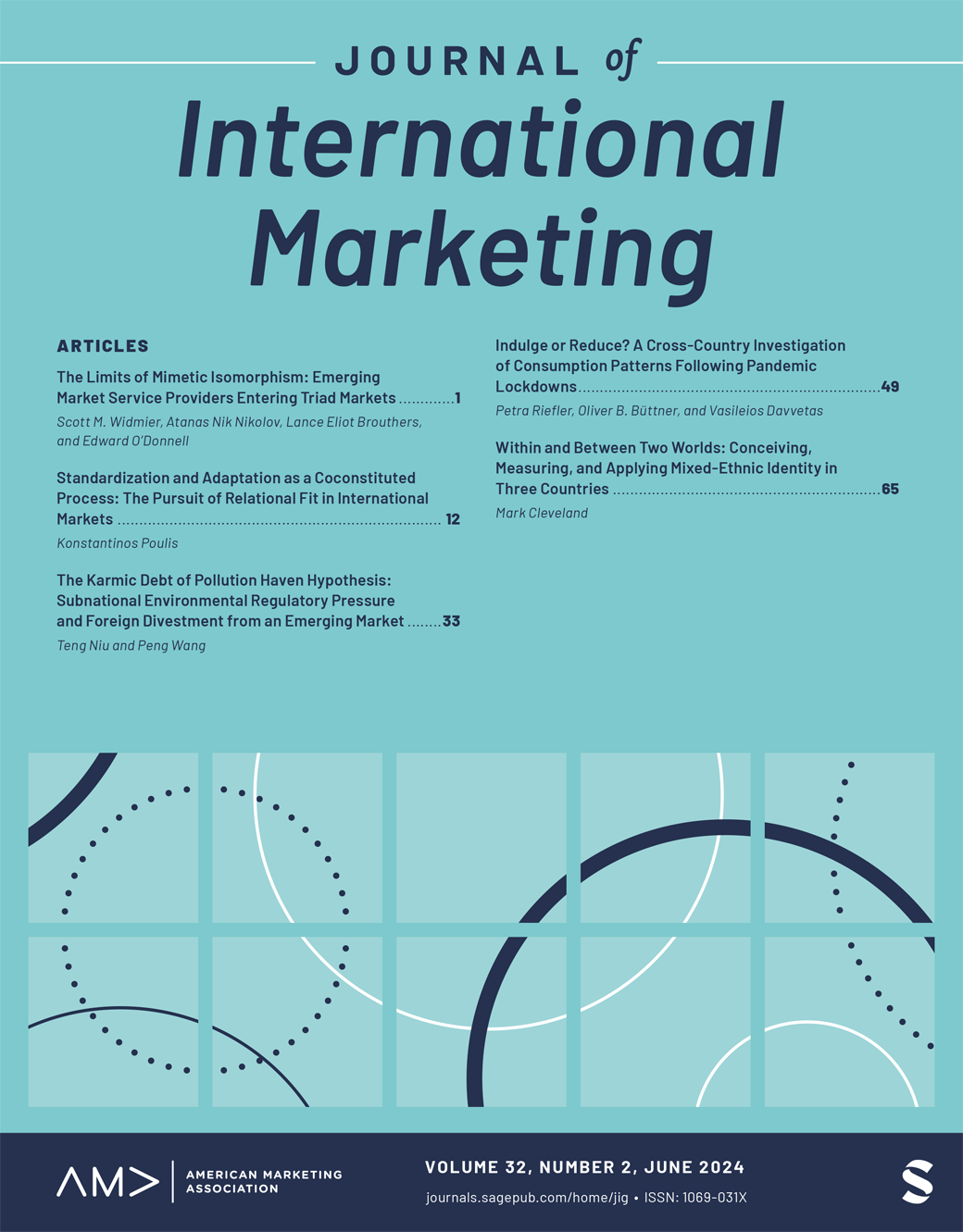子公司营销敏捷性:市场导向与营销方案标准化是绩效的“双引擎”
IF 4.2
2区 管理学
Q1 BUSINESS
引用次数: 2
摘要
跨国公司(MNCs)必须平衡当地寻求机会的举措与全球计划和要求。这种产生和响应当地见解与开发标准化营销计划之间的平衡需要某种形式的营销敏捷性。在此视角下,本研究探讨了市场导向(MO)和营销计划标准化(MPS)这两种关键营销能力之间的关系及其对子公司绩效的双重影响。作者比较了西方跨国公司在日本和土耳其的子公司的案例,并探讨了一个国家的经济发展(发达市场与新兴市场)和一个行业的全球竞争相互依赖的调节作用。在子成分层面分析MO,他们发现两个市场的响应性和MPS之间存在正相关关系。在发达市场中,MPS还可以作为响应性和盈利能力之间的部分中介。在发达市场中,响应性和MPS都与盈利能力和市场份额呈正相关。在新兴市场中,MPS与支持适应营销计划的盈利能力呈负相关。研究结果以及与成熟跨国公司高管的后续讨论支持MO和MPS的概念,认为它们反映了子公司的国际营销敏捷性。本文章由计算机程序翻译,如有差异,请以英文原文为准。
Marketing Agility in Subsidiaries: Market Orientation and Marketing Program Standardization as the “Twin Engines” of Performance
Multinational corporations (MNCs) must balance opportunity-seeking initiatives locally with global programs and imperatives. This balancing act between generating and responding to local insights and exploiting standardized marketing programs calls for some form of marketing agility. Under this lens, this study investigates the relationship between market orientation (MO) and marketing program standardization (MPS)—two critical marketing capabilities—and their dual effects on subsidiary performance. The authors compare the cases of Western MNCs’ subsidiaries operating in Japan and Turkey and inquire about the moderating role of a country's economic development (advanced vs. emerging market) and an industry's global competitive interdependence. Analyzing MO at the subcomponent level, they find a positive relationship between responsiveness and MPS in both markets. MPS also functions as a partial mediator between responsiveness and profitability in an advanced market. In an advanced market, both responsiveness and MPS are positively related to profitability and market share. In an emerging market, MPS is negatively related to profitability in support of adapting the marketing program. The results and follow-up discussions with executives from established MNCs support the conceptualization of MO and MPS as reflections of international marketing agility in subsidiaries.
求助全文
通过发布文献求助,成功后即可免费获取论文全文。
去求助
来源期刊

Journal of International Marketing
BUSINESS-
CiteScore
8.70
自引率
17.20%
发文量
28
期刊介绍:
As the globalization of markets continues at a rapid pace, business practitioners and educators alike face the challenge of staying current with the developments. Marketing managers require a source of new information and insights on international business events. International marketing educators require a forum for disseminating their thoughts and research findings. Journal of International Marketing(JIM) is an international, peer-reviewed journal dedicated to advancing international marketing practice, research, and theory. Contributions addressing any aspect of international marketing management are published each quarter.
 求助内容:
求助内容: 应助结果提醒方式:
应助结果提醒方式:


